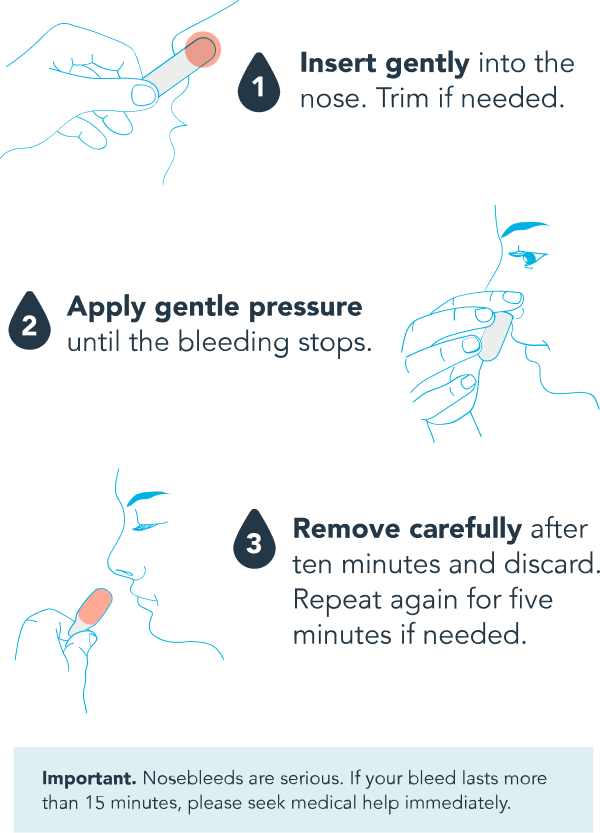Causes, treatment & prevention of nosebleeds in seniors
As we age, the lining of our nasal walls thins, making an already fragile environment more prone to bursting and bleeding. Below, you will learn the main causes that lead to this, as well as how to prevent and properly treat a nosebleed.
-
Causes
There are several factors that can cause nosebleeds as we age. The medications we take can have a drying effect on our nasal passages. Staying indoors for longer periods also tends to dry out the nose, and simply aging can change our bodies in ways that dry out the nose. Nosebleeds occur more often as we get older, but are typically not serious. However, nosebleeds may be a sign of an underlying medical condition. If they are happening frequently or for extended periods of time per occurrence, please talk to your doctor.
-
- Underlying health conditions, such as arterial hypertension, cardiovascular (heart) issues, liver or kidney disease, or difficulty with blood clotting.
- Blood thinning and other prescription drugs
- Dry weather causes the blood vessels to burst and bleed
- Allergies that dry the nose and weaken the lining
- Certain medications, such as nose sprays, decongestants, and Advil
- Excessive exposure to indoor, heated air that dries the nose
- Infections, such as COVID, the flu, or even a cold that leads to excessive sneezing, which can rupture the thinner nasal walls

Proper Treatment
If you've had a nosebleed or know someone who has, you've probably been told to use a tissue, a cotton ball with nasal spray on it, or even to jam a tampon up your nose. This is what ENTs and doctors call the "old standard of care" for treating a nosebleed. The problem is that none of those treatments were designed for nosebleeds, and each has its own issues, such as a single tissue not absorbing enough blood, which requires you to switch them out, exposing you to an unsanitary situation. Or a tampon agitating the delicate nasal cavity wall, causing more nosebleeds in the future.
Most doctors now recommend nasal plugs, such as Nampons®, to treat nosebleeds. They expand to apply gentle, non-abrasive pressure on the wound from inside the nose, slowing the bleeding. They have a hypoallergenic clotting agent used since the 1950s to stop the bleed, and they are non-stick, so they can be removed without reopening the bleed. They also absorb 10x more blood than the old solutions - meaning less mess and concern.
-
Prevention
Nosebleeds can happen to anyone, at any time, in any place, making them frustrating and a definite annoyance. They happen far more frequently than people realize (1 in 6 people get them every year), and more often in seniors than in other adults. While there is no magic bullet to completely prevent them, there are a few things you can do to reduce the chance of them occurring.
-
- Get outside. If you spend a lot of time indoors, the air conditioning can be drying. Getting a few hours of fresh air can help moisturize the nose and prevent nosebleeds.
- Use a saline spray. If you live in a dryer or colder area, keep a moisturizing spray handy. Using one or two sprays a day will keep the nasal cavities well-lubricated.
- Double-check your medication. Certain medications, such as antihistamines for allergies, have a drying effect. While effective at relieving congestion, they can often make your nose brittle and cracked, leading to a nosebleed. Look for alternatives, use them along with a saline spray, or talk with your doctor about options.
- Try a humidifier. Humidifiers are wonderful if you are indoors a lot or live in a cold, dry place.

